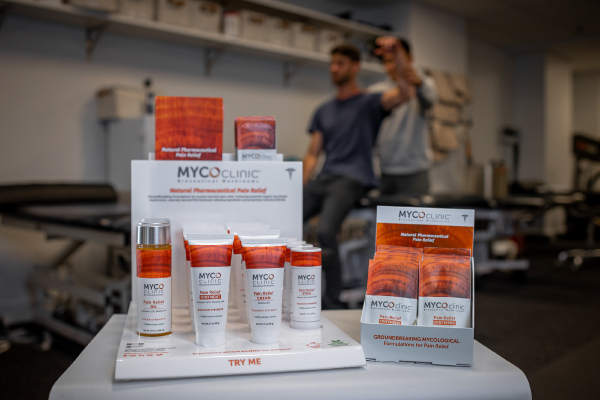The American Massage Therapy Association (AMTA) and Associated Bodywork & Massage Professionals (ABMP) are joining together to respond to the new report on human trafficking and recommendations by the Federation of State Massage Therapy Boards (FSMTB).
Human trafficking is a serious problem worldwide. It takes many forms, including forced labor, domestic servitude, and commercial sex trafficking. AMTA and ABMP condemn all forms of human trafficking and support the myriad law enforcement efforts to combat it.
One of the pretenses employed by traffickers to attempt to disguise their exploitation of individuals under their control is to co-opt the word ‘massage’ to describe what in fact is forced prostitution. This pretense has led numerous concerned but misguided state and local governments to create ordinances and regulations directed at legitimate practitioners of massage therapy. The result has been inappropriate burdens on licensed, educated massage therapists performing work to support clients’ health and well-being.
In its response to a Federation of State Massage Therapy Boards (FSMTB) survey on human trafficking in 2016, AMTA stated, “Given that there are no real data to reflect the instances of human trafficking in the profession, the real impact is perception. Human trafficking is an indefensible act and, globally, very prevalent, but it isn’t a massage therapy fight. It’s a distraction from our mission to promote massage therapy as a means for health.”
Addressing both human trafficking in general and prostitution specifically is the province of law enforcement, not massage therapists or regulators of the massage therapy profession. Virtually every jurisdiction has laws on the books that empower police and district attorneys to pursue human trafficking and prostitution. Imperfect enforcement is a product mostly of inadequate resources and priority given to these issues.
Legitimate massage therapists are regulated (save for Kansas, Minnesota, Vermont and Wyoming) either by state massage boards or other state government departments. To advance sound regulatory practices, these boards and government agencies elected to form FSMTB. FSMTB does not govern state regulators, but rather convenes representatives to examine issues and develop best practices guidelines. FSMTB also developed and administers a profession entry examination, which most state regulatory bodies have chosen to adopt. Both AMTA and ABMP support the general purposes FSMTB was formed to serve.
FSMTB’s recently issued report on human trafficking includes numerous recommendations that, if implemented, would inappropriately burden the practice of massage therapy. Despite our shared general support for FSMTB, ABMP and AMTA believe FSMTB and the task force it created are badly off-base, arguing for changes that would lead state boards outside the boundaries and purposes for which they were formed.
The FSMTB task force did reach out in the early stages of its work to an array of organizations, including ABMP and AMTA, comprising the Coalition of National Massage Organizations (Coalition). AMTA’s comment above and similar views expressed by ABMP were part of the feedback they received.
Now FSMTB’s final report implies that AMTA and ABMP, along with other Coalition organizations, support the report’s findings and recommendations. AMTA and ABMP strenuously object to this characterization and demand that FSMTB remove any such language from their report.
Following are our basic objections to the report and its recommendations:
- The opening sentence and paragraph of the Executive Summary imply that the massage therapy profession is infested with human trafficking, rather than reporting that human traffickers and prostitutes use the word ‘massage’ to bypass unenforced laws to conduct their illegal activities. Prostitutes and human traffickers are outside the massage therapy profession, not a part of it. They are using the good name of massage therapy to give a false appearance to their illegal activities. The implication of the report is that massage and the massage therapy profession are the problems, not human traffickers and prostitutes co-opting our profession.
- Human trafficking and prostitution are very different activities. This report does not adequately differentiate between them or how they each use the name of massage to hide their behavior.
- The report is filled with information that ignores FBI and Homeland Security data and lacks credible citations.
- In January 2013, the national UCR Program began collecting offense and arrest data regarding human trafficking as authorized by the William Wilberforce Trafficking Victims Protection Reauthorization Act of 2008. The act requires the FBI to collect human trafficking offense data and to make distinctions between prostitution, assisting or promoting prostitution, and purchasing prostitution. The FSMTB report surprisingly does not address this data.
- Human trafficking is an issue to be primarily addressed by law enforcement. The FBI has stated: “Human trafficking, believed to be the third-largest criminal activity in the world, is a form of human slavery which must be addressed at the interagency level. The FBI works human trafficking cases under both its Civil Rights program and its Violent Crimes Against Children program. The majority of human trafficking victims in our cases are U.S. citizens, and we take a victim- centered approach in investigating such cases, which means that ensuring the needs of the victims take precedence over all other considerations.”
The FSMTB is straying far from its mission in this report. It ignores readily available data from law enforcement and implies, wrongly in our opinion, that the massage therapy profession is responsible for ending human trafficking. AMTA and ABMP oppose the premise of the report. We reject both the misinformation it conveys and its perceptions about the responsibilities of the massage therapy profession.


